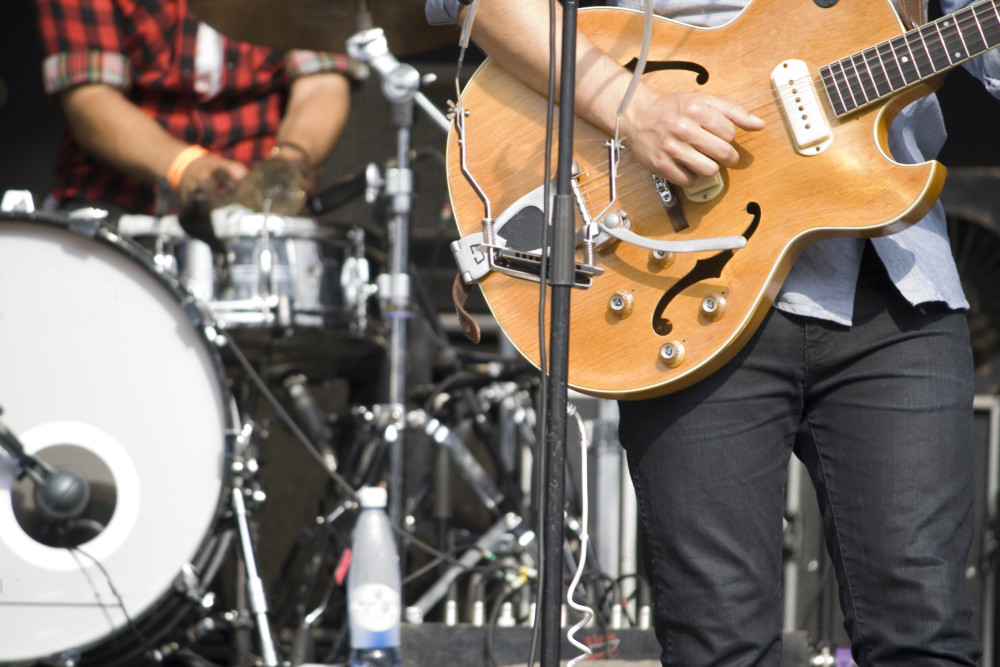By Rebecca Beitsch
Stateline.org
WWR Article Summary (tl;dr) Under federal copyright law, artists must be compensated when their music is played in a commercial setting, whether it’s a recording played at a dive bar or an acoustic cover performed live at a winery.
Stateline.org
It started with letters. Then came the phone calls, and a guy on the other end of the line who kept saying, “If you don’t pay, we’ll have to sue.”
Les Meyer felt threatened. And how the heck did they know he featured live music at his little winery in rural Nebraska?
“They wouldn’t identify themselves, and they try to trap you into things,” said Meyer, who owns Capitol View Winery and Vineyards outside of Lincoln. “He asks, ‘If I like the music can I get up and dance?’ I say, ‘I wouldn’t be offended.’ Next thing I know he’s claiming I offer dances, and that’s a bigger fee.”
Under federal copyright law, artists must be compensated when their music is played in a commercial setting, whether it’s a recording played at a dive bar or an acoustic cover performed live at a winery. It’s performance rights organizations’ job to collect that money for their artist and songwriter clients.
But threatening small-business owners, calling them after hours, and using offensive and coercive language? State lawmakers say none of that is OK, so they’re enacting laws to stop it.
In addition to owning a winery, Meyer happens to be a lobbyist for the Nebraska Winery and Grape Growers Association, and this year he helped persuade state lawmakers to enact a law that levies fines on performance rights organizations whose representatives use “obscene, abusive, or profane language” or “engage in coercive conduct.”
Meyer soon realized that the claims in the calls, even if impolitely delivered, were accurate.
For a business of his size, yearlong licenses can cost anywhere from $300 to $600 apiece. Fees for larger establishments can run thousands of dollars a year, and each of the four major U.S. companies that license the millions of songs copyrighted in the United States often demand payment.
Oregon, Colorado and Washington state have enacted similar laws in the past two years, allowing venue owners or the state attorney general to bring civil suits against a performing rights organization if its representatives violate the law.
As in Nebraska, wineries, restaurants and bars have lobbied for the laws in other states.
Oregon state Rep. Paul Holvey, the Democrat who chairs the committee that first considered the Oregon legislation, said he’s heard the horror stories from bar owners in his state. But he also sympathizes with performance rights groups that have a hard time collecting the money they are owed.
He said many restaurateurs and bar owners “ignore them and don’t respond and don’t acknowledge any obligation to performing rights organizations for the musicians playing songs in their facility.”
Representatives for two of the largest performance rights organizations, the American Society of Composers, Authors and Publishers (ASCAP) and Broadcast Music Inc. (BMI), say their employees, who track live performances online through social media posts, venue websites and event calendars, receive extensive training on how to interact professionally with the businesses they are trying to sell licenses to.
“There should not be any use of foul language or the like,” said Pamela Williams, a BMI vice president. “Their interactions with businesses should be very appropriate or pleasant and obviously we just expect the same back from the businesses that we’re speaking to on the other end.”
ASCAP said it does sometimes send investigators to bars and other venues that have not purchased music licenses to take note of music being played, information that may later be used in a lawsuit.
The new Nebraska law bars “any unfair or deceptive act” and requires employees of music licensing companies to disclose that they work for the company.
ASCAP, BMI and others have sued bars for failing to pay for the music they play. Tadpole’s bar outside of Tampa, Florida, closed in 2015 after it couldn’t absorb a $30,000 settlement with BMI.
A federal judge in April ordered Villari’s Lakeside, a New Jersey restaurant and bar, to pay more than $56,000 to BMI. BMI had tried to sell the bar a license for almost four years, at a cost of $6,500 a year, according to the most recent quote.
Each company sells blanket licenses that cover every song it owns, but they also have searchable databases of the works they license so that business owners can pick and choose. BMI owns nearly 13 million songs and ASCAP more than 11.5 million.
Restaurateurs and bar owners say they support musicians by giving them a place to play while the licensing companies are just bullies.
The companies argue that they are just getting musicians the money they deserve. BMI and ASCAP are nonprofits and say they give 88 percent of the money collected back to musicians.
“We are the smallest of small-business owners,” said John Johnson, ASCAP senior vice president of licensing, referring to his company’s clients. “Our songwriters are struggling to put food on their tables.”
BMI and ASCAP say they support the new laws because they reinforce federal law and remind venues that they must pay for licensing.
Some musicians also support the laws because they don’t want the venues where they earn the bulk of their money to decide that live music isn’t worth the risk.
Shawn Cole, a Nebraska artist who performs throughout the Midwest, said he earns almost nothing in royalties on his music, “Zero. I’ll be lucky if I get a check for 12 cents this year,” he said.
Johnson said he doesn’t want to shut down bars, but they have to pay their dues.
“It’s a cost of business like paying for any other thing. It’s like bars and wineries having to pay for the napkins or salt on their table,” he said. “The music played that sets ambiance for that business is the property of one of our members.”














































































































































































































































































































































































